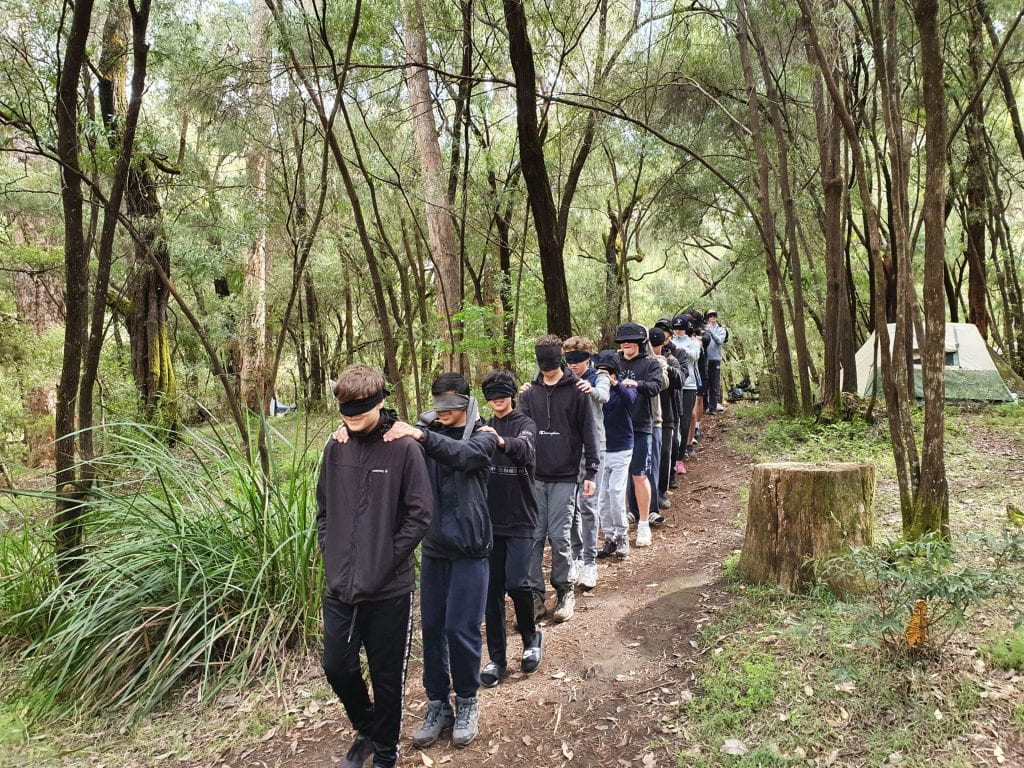Attached is the PowerPoint I made as a reflection for our engineering challenge.
Month: November 2021
Lock Camp Reflection
Camp was a blast! We had so much fun participating in various activities such as rafting, abseiling, team building, and an amazing race, but also, it was an opportunity to develop our capabilities in an engaging and visual way. Some of the capabilities that I improved on are; being collaborative and communicating well whilst rafting with my partner Adeolu, being resilient whilst team building and being last out of the maze, and being inquisitive when rock climbing, and falling upside down very high up.
Collaboration and Communication whilst Rafting
During our camp on the second day, we were lucky enough to have gone rafting in Three drops in the Collie River. Whilst in the river, we had so much fun sliding down the rapids, despite the freezing water. We were the luckiest of groups, having the best weather to go in. Rafting was all about collaboration and effective communication, because we were required to have a partner, and share a raft. I was partners with Adeolu, and together we worked so well together, and had so much fun! We were able to effectively communicate when navigating and steering the raft with our oars, and flipping over into the cold water (despite being reluctant), we were talking about how to do it, when to do it, and where to do it. We also collaborated together well, splitting up the jobs of carrying, seating arrangement (front or back). Overall, it was an amazing experience that was also a communication learning opportunity.

Being Inquisitive whilst Rock Climbing
At the start of the subject, we started to rock climb on the ASC wall. Whilst we were climbing, we also had to learn numerous knots including a reef knot, overhand, bowline, double fisherman’s, figure eight, figure eight on the bite, figure eight follow through, and clove hitch. Once we had all learnt how to tie these knots, we could solely focus on rock climbing. Amongst other capabilities, we really needed to be inquisitive with rock climbing, finding different ways and routes to make our way up the 4 walls and touch the roof showing success. Not only did we have to climb, but we also had to belay each other, which involved helping others finding their way up, whilst holding the rope they are attached to, supporting their weight in case they fall. Being inquisitive on the wall (and off the wall) has helped me to touch the rock climbing roof multiple times.

Resilience whilst Team Building
On the last day of camp, we were given the opportunity to reflect about our time on camp with our group, by playing some team building games. The first game we played was a rope maze, that had been set up by Mr J. and Mr Stevens to challenge our senses, as we had to be blindfolded. Everyone was challenged throughout this process. Some people got out very quickly. Others took longer. I was the last one on the maze. I was struggling, but I was determined to keep going and finish the maze. When I eventually got to the end, I realised that everyone else had already finished. I felt a little embarrassed, but I laughed it off and bounced back to participate in the other two challenges. Resilience is really important to get on with life, otherwise, you will spend all of your time dwelling on past mistakes, failures and/or setbacks. The most positive way to go through life is to stay positive with resilience.

Leave No Trace
Plan ahead and prepare
Before we set off on camp, we cut up everything so there would be less sunlight wasted on chopping. When we were on camp, we saved about 30 minutes of time just by having everything pre-ready.
Travel and camp on durable surfaces
Throughout our camp, we set up our tents on the ground. We needed to pick a place that was away from disturbing nature and wildlife, but also so we weren’t sleeping on rocks. We also had to make sure that our spot wasn’t wet, because it rained on our journey there.
Dispose of waste properly
Whilst we were on camp, we had nowhere to put our rubbish, considering we stayed in a natural area. The only thing we could do was to burn paper in the fire. We prepared for this by not taking rubbish with us such as plastic food wrapping, and if we had any rubbish, we waited until we got into town to dispose of it in the correct bin.
Leave what you find
Our camp was surrounded by incredible species of plants and wildlife, meaning we couldn’t disturb them otherwise their ecosystem would be interrupted. The only things we did take with us were bits of rubbish that we found lying around the bush, that despite not being ours, was still polluting the environment.
Minimise campfire impacts
Once we had finished with our campfires, we had to make sure that no wood debris, or rubbish was left around that wildlife could eat. By clearing the debris, this would give the next person using it an easier way to light the fire.
Respect wildlife
We had numerous amounts of wildlife coming through our camp. Most of them were birds such as wandering ducks, magpies, and other assorted birds that woke us up in the morning. We were careful, not to disturb them, by letting them wander (within certain boundaries i.e. not near our tents) and not feeding them any food that they may not be able to digest.
Be considerate of other visitors
Whilst on camp, we didn’t really share the campsite with general members of the public, but with the ones we did, we were considerate by not talking and making noise too late in the night, and by not invading private space.